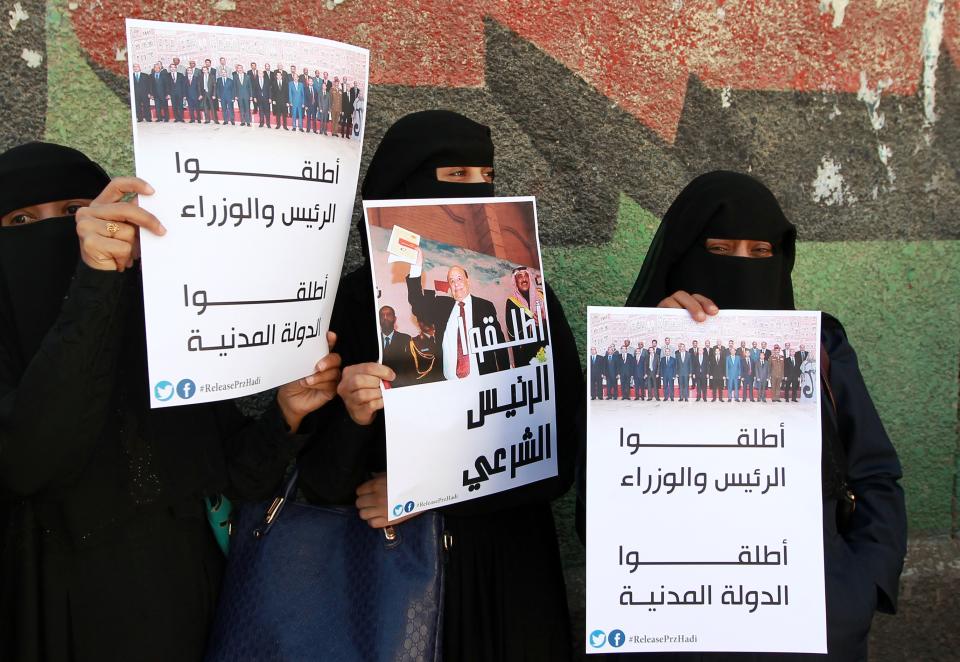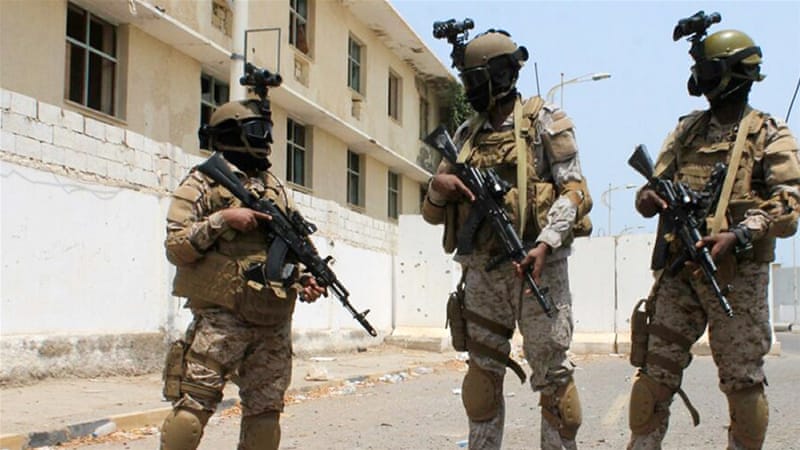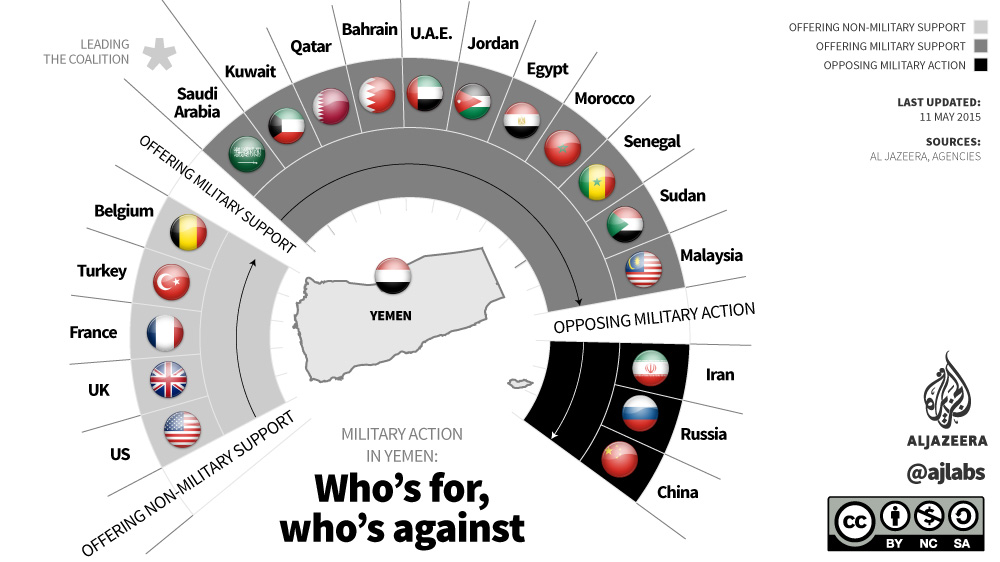An Indigent Nation's Distress
"We expect a lot of people to die if the water situation remains unchanged. This is a catastrophic threat."The United Nations and aid agencies state that at least 8,000 suspected cases of malaria and dengue fever have arisen in recent weeks in embattled Yemen. Among the impoverished population many are forced to become internally displaced refugees by the war in Yemen with the Houthi Shiites challenging the Yemeni government of President Abed Rabbo Mansour Hadi in favour of their choice for President, strongman Ali Abdullah Saleh.
Ahmed Shadoul, World Health Organization head of mission in Yemen
"It used to be that we would run for shelter when it rained. Now, if there's rain, we all run outside with buckets."
Hussein bin Mohammed, pharmaceutical salesman, Taiz, Yemen
 | |
| Yemeni protesters attend a demonstration in Sanaa on February 21, 2015, against the Shiite Huthi movement (AFP Photo/Mohammed Huwais) |
 An earlier Saudi-initiated humanitarian pause lasted for only five days in May [AFP]
An earlier Saudi-initiated humanitarian pause lasted for only five days in May [AFP]The ceasefire came at the request of Yemen's President Abd-Rabbu Mansour Hadi, who remains in refuge in the Saudi capital along with other members of his contested government. The truce was sought to allow the "delivery and distribution of the maximum amount of humanitarian and medical aid," according to the Saudi press agency. The number of residents with no access to drinking water has doubled since the war began.
Over 20 million people, representing roughly 80 percent of Yemen's population, find it a daily struggle to obtain water sufficient to serve their daily needs; potable water for drinking and cooking, and water for even the most basic of hygiene purposes. Malaria is on the spread and hundreds have already died with residents forced to use unsanitary water sources. The threat of famine is not far behind.
"People are shaving their heads because they don't have enough water to wash their hair", Mubarak Salmeen, living in Aden with his wife and five children complained. In a country with a long experience with the shortage of water in their dry climate and a tradition of water resources mismanagement by government, the present situation is putting people to an existential test.
Yemenites are addicted to khat, a plant that endows people with a stimulative effect when the leaves are chewed. And growing khat takes an enormous amount of water, wasted for an inedible plant's survival, using huge amounts of groundwater diverted to cultivating the plant. An increase in the violence has meant that water is even more difficult to access than ever, Water infrastructure in Aden with its one million people have seen their taps dry up.
Power plants and electricity lines have all been bombed. Municipal authorities have been unable to pump water to residents. Even the diesel fuel for use in back-up generators used to power pumps has become a scarce commodity. Transporting it through war zones is beyond difficult. There is an air and naval blockade by the Saudi-led coalition and its result has restricted imports. The price of water has soared beyond the capability of most Yemenites to afford it.
"I never thought we'd be at the point of thinking about whether we can afford water", Fuad Abdulrahman Ali from Sanaa, a father of three, said of the quadrupled price for water trucked in from surrounding villages' wells. Wildcat drillers are busy boring wells to extract untreated groundwater. Leaving residents to store water in uncovered containers that quickly become breeding places for mosquitoes.
Cholera and other water-borne diseases are likely to spread under these conditions, warns the United Nations and aid agencies. And then there is the risk through the displacement of so many people, of conditions aggravating human relations. Disputes over water access and land ownership already kills thousands of Yemenis every year.
"Ground blockades by the Houthi forces have been stopping aid and cutting off places like Aden and preventing food supplies and medical supplies from getting in", reported independent journalist Iona Craig. The pause in fighting declared by the Saudi coalition is meant to aid areas of the country desperate for basic staples like water, rice, flour, fruit, vegetables and fuel.

Labels: Conflict, Iran, Saudi Arabia, Shiites, Yemen

<< Home